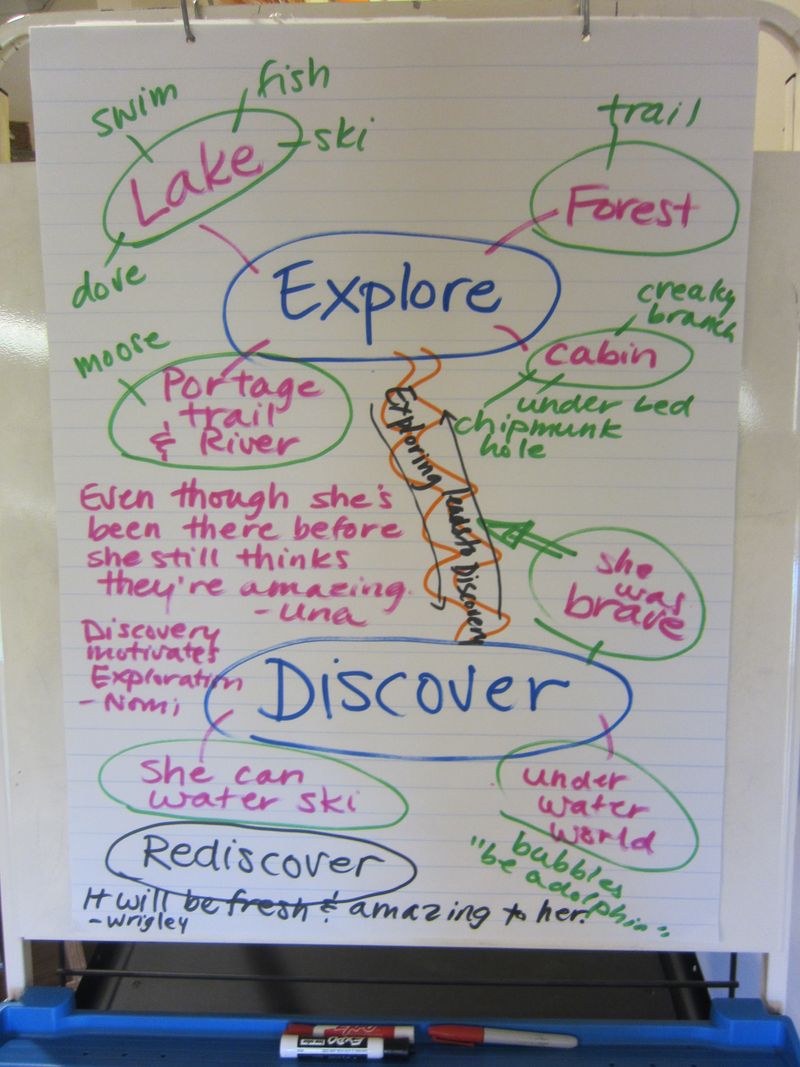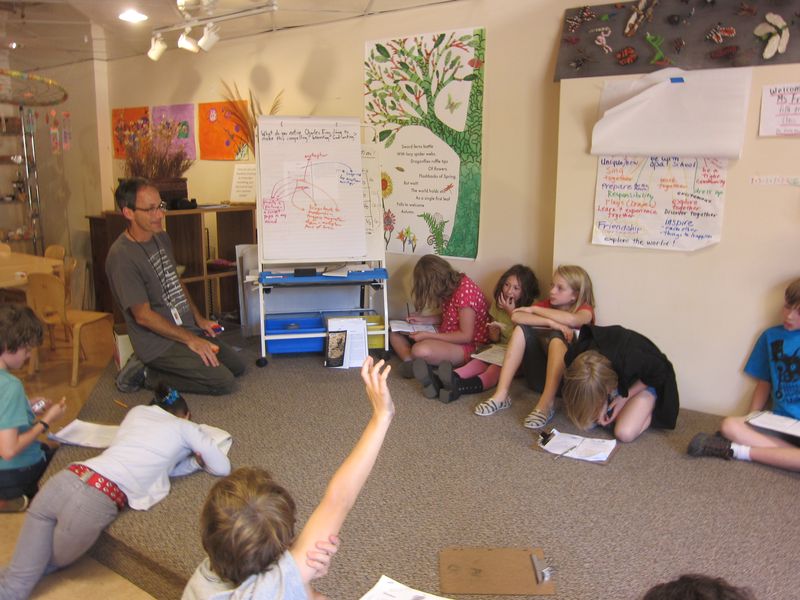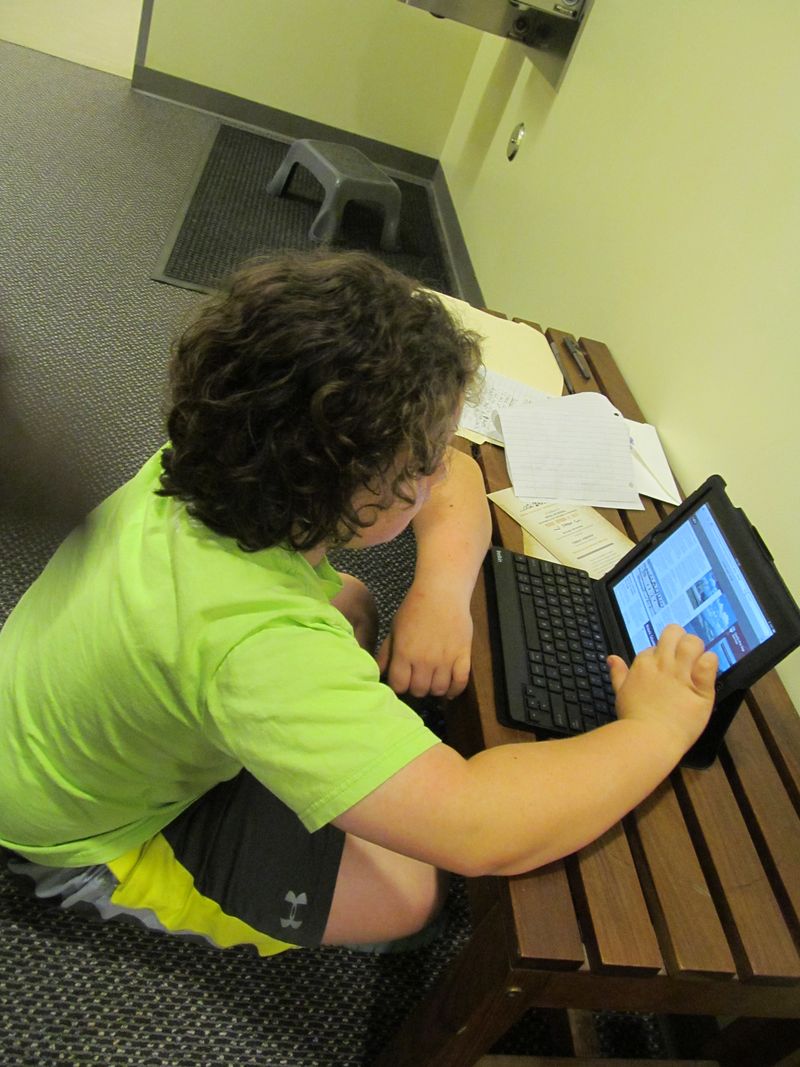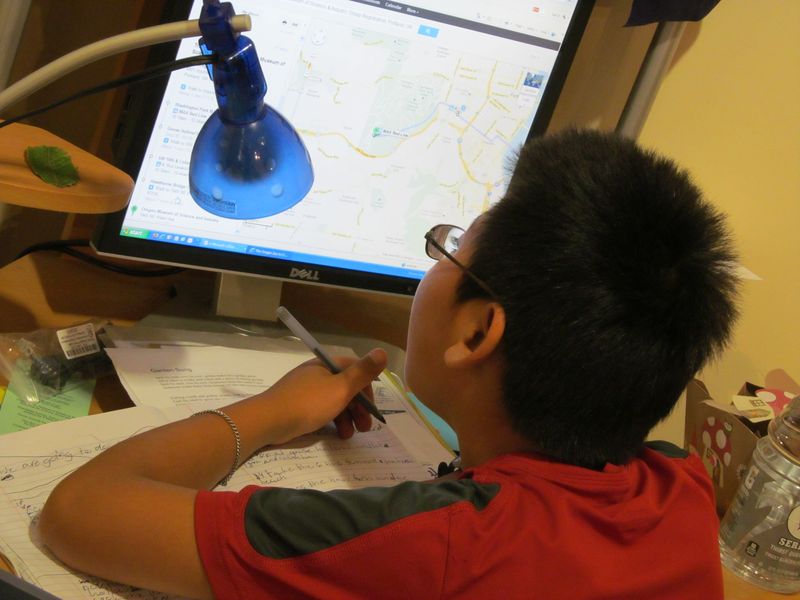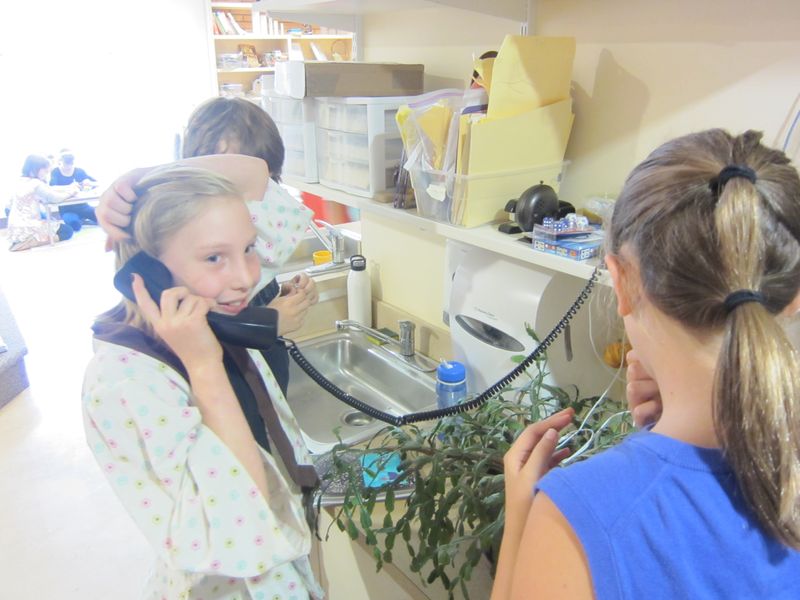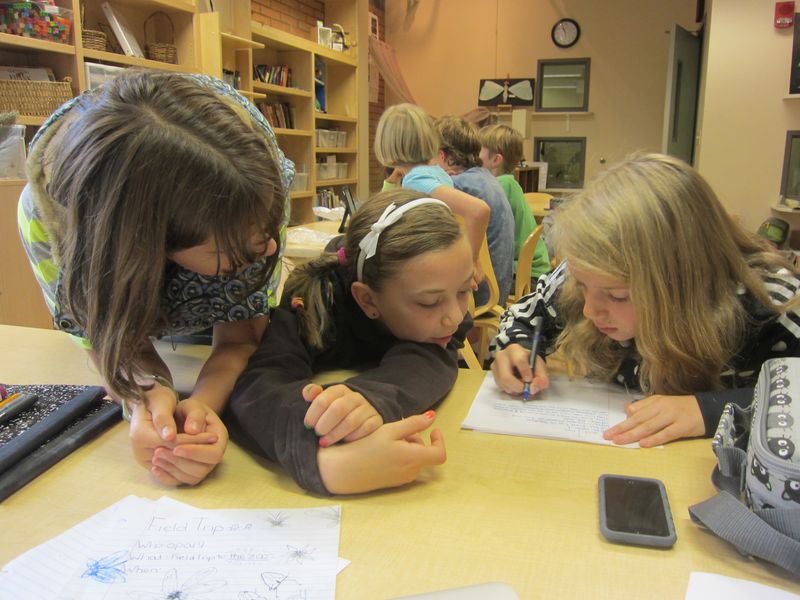How did Explorer’s Workshop get started in Opal 4?
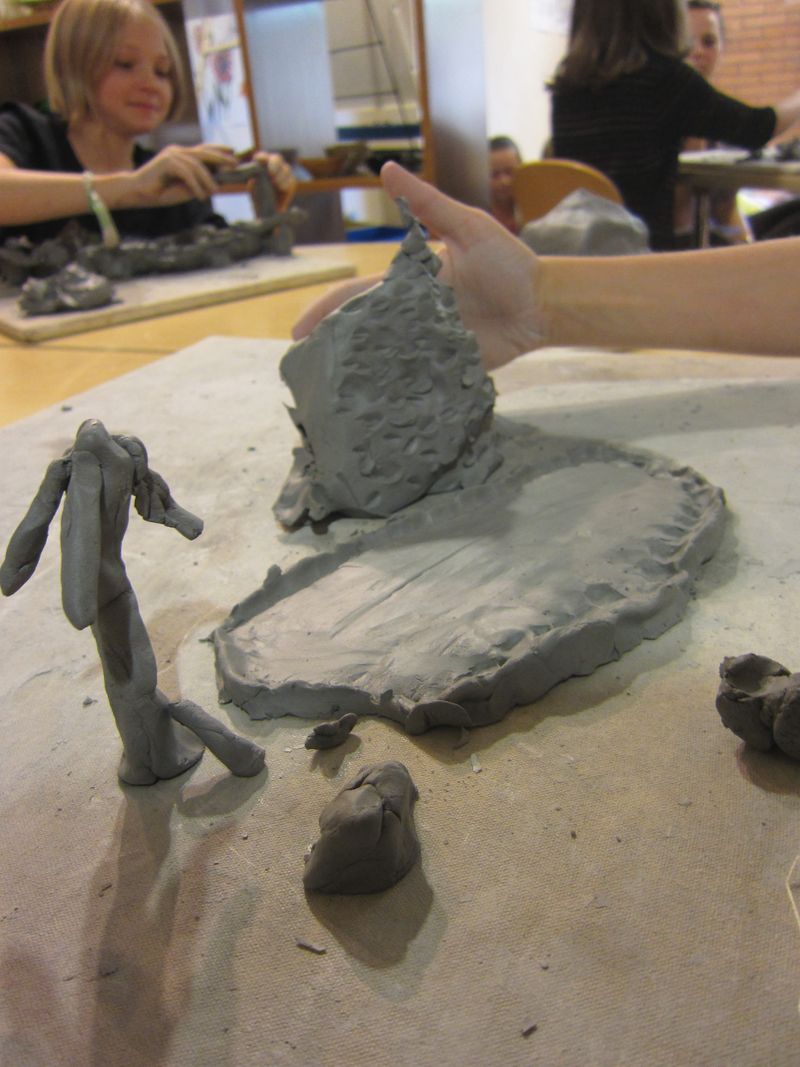
How do teacher intentions frame a year of project work?
Before the school year started, Matt and I looked over the State of Oregon’s social studies standards for fifth grade and saw that our focus should be U.S. History 1492-1786.
Three of the four standards for fifth grade under “Historical Knowledge” are:
1.1. Identify and compare historical Native American groups and settlements that existed in North America prior to contact with European exploration in the late fifteenth and sixteenth centuries.
5.2. Locate and examine accounts of early Spanish, French and British explorations of North America noting major land and water routes, reasons for exploration and the location and impact of exploration and settlement.
5.3. Explain the religious, political, and economic reasons for movement of people from Europe to the Americas and describe instances of both cooperation and conflict between Native American Indians and European settlers.
Then we started to think about some initial Essential Questions, questions that are written to provoke ongoing thinking, related to these huge ideas. We started to wonder:
- What does it mean to explore?
- What does it mean to discover?
- How will our students understand these ideas?
- How will the ideas of exploration and discovery frame an understanding of encounter and contact in the period of US history we will study?
- What does it mean to co-construct curriculum?
Creating shared experiences and meaning
We started the school year talking about the places we explored over the summer and what we discovered while we were there. The students started to create shared meaning for these concepts and ideas.
We jumped into a genre study based on essays of encounter with a creature in wildlife where the author “discovered something from his encounter with the animal.” –SBM
Inviting the children into playful inquiry
We asked the children, “What places would you like to explore?”
The stories of history are so much more relevant when our stories and our play connect to them.
We invited the students to join in Explorers’ Workshop and research and propose possible field trips and outings.
On September 26, Matt introduced Explorers’ Workshop to the class. We had already read some picture books about Christoher Columbus and were building schema around his story – how he convinced the King and Queen of Spain to charter his expedition.
Matt: You’ve told me that Columbus needed ships, men, and money to go out on his expedition. It would be like sending a spaceship to the moon. What’s one thing they might have wanted to know to send Columbus?
WK: They would probably want to know if this is going to work because they won’t spend their money if it won’t work. They don’t want to waste their money and lose some of their power because they’d waste the people’s money. It could take down all of Spain because they might lose all of their power.
Matt: What are the risks involved?
EJ: I don’t know if they already knew this but I would ask what they needed all these things for.
Matt: So, What’s his purpose?
PG: What’s your reason for doing this? Do you want to find treasure?
SBM: They would want to know that he would live up to his end of the bargain. That he wouldn’t take the ships and sell the men. That he would actually find land.
KB: I know he had a plan to go somewhere. Unless I knew that there actually was a place, I’d look at maps and such. I’d ask people who’d sailed there already. I wouldn’t want to kill Spain.
ER: How can I trust you and how can I trust that you are a trustworthy sailor?
RC: Has anyone done this before? Has anyone in the world done this before? I just looked it up. 400 years before Scandinavian people had crossed into America.
SD: Do you have experience? Does he know what to do?
WK: I think they discovered that every time he kept coming back. It showed them that he probably was a good sailor.
Matt- We have uncharted waters and we want to go exploring. It’s like how Columbus went to the king and queen and kept asking to go to The Indies. We could say field trips- what do we need to go do that? Here’s my question to you, if you wanted to propose for our community to explore a place, which of these questions need to be answered?
SD: What’s the purpose? If you said oh, let’s go to the library, you have to have a reason to go learn something at the library.
HH: There had to be an okay time. What would we miss at school?
RS: What do you need? We would need to present the route?
AA: Why did you choose this instead of something else?
SD: You should probably know something about it. But if you’re someone else you don’t need go know a ton about it.
Matt- It seems like two sides – one, we’ve already done something and is it silly to do something we have already done. And two we need to know enough about it.
AA: The bus schedule is really important.
ER: How much will it cost? What do we need to bring?
The playful nature of the work allows us all to switch back and forth between 1492 and 2012 without skipping a beat. The work of explorers more than 500 years ago becomes important and relevant to our work.
What did proposals for charters look like in the past?
How are primary sources supporting our work?
Matt shared a sneak peek from “Discourse of Western Planting” written in 1584 by Richard Hackluyt wherein Mr. Hackluyt listed 23 reasons that England should colonize the New World. If Mr. Hackluyt listed 23 reasons, how many will you need in your proposal?
We chose this to connect their work with the stories of history. Someone else proposed a trip and was hoping to get permission (a charter) granted so they could go. What motivated them to go? What motivates us? Will it matter if the person in a position of authority doesn’t agree?
How do children become protagonists in their learning?
The field trip proposals are real and engaging for the students. They thought of places to go, things to do and see that got them excited and involved in the work.
They used websites,
maps and transit planners,
and personal phone calls,
to gather the data they needed to write their proposals.
How did the King and Queen of the Kingdom of Opal 4 respond to these proposals?
How has this work fueled the schema and project work Opal 4 students have been engaged in this fall?
I will continue to tell our story in future posts!


